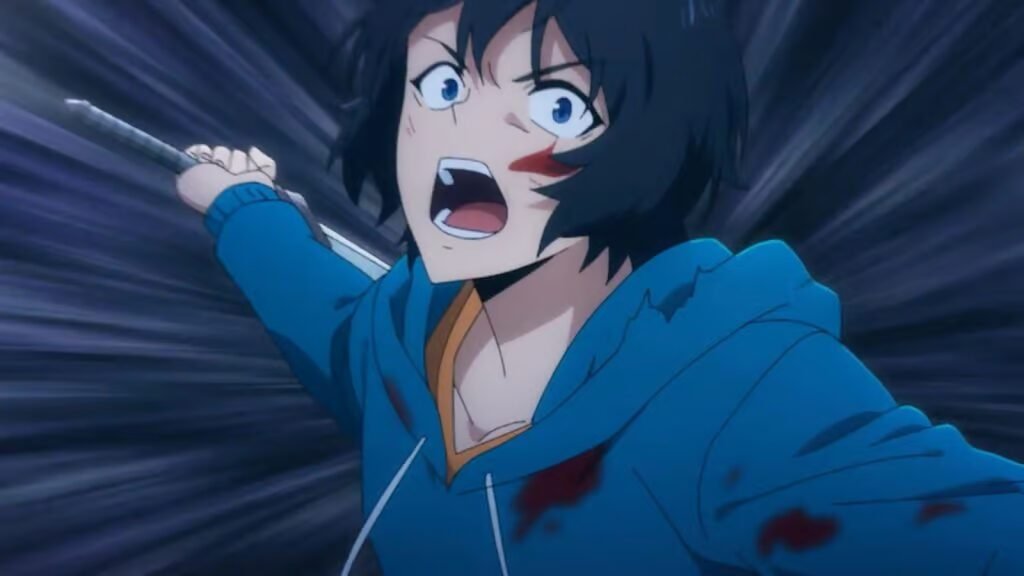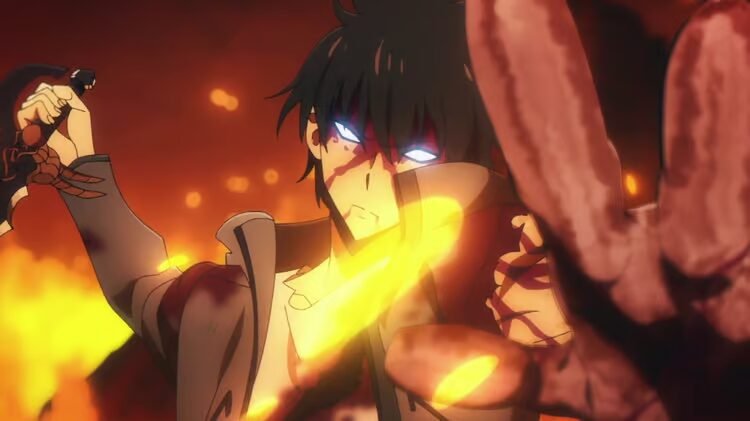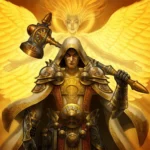The mix of fantasy and sci-fi elements in Solo Leveling is influenced by The Matrix, yet Sung Jinwoo’s journey surpasses Neo’s.
I recently saw the first three Matrix movies again, and I have to say that they are still rather good. The universe, ambition, and unabashed originality of Lilly and Lana Wachowski have aged like good wine, even though the sequels are a little uneven.
I watched The Animatrix, an animated collection of short films that explored many aspects of the struggle against the machines, after finishing Neo’s quest. I adore The Matrix, and every time I watch the series, I’m let down by the lack of additional content.
Fortunately, Solo Leveling, an anime series, arrived this winter and filled the void left by the matrix in my mind. With the added twist that Sung Jinwoo is a regular guy who is more the right person at the right time than a wonderful person, Neo’s AI-assisted voyage across another reality is similar to Neo’s quest.

That person is Sung Jinwoo.
In the first episode, after a group of heroes are imprisoned in a horrific dungeon where massive stone gods run over anyone not cunning enough to recognize their patterns, Sung Jinwoo sacrifices himself to save what’s left of them. Sung’s intelligence allowed him to see past the gods’ attacks but at his own physical cost.
Amazingly, after being saved, he awakens in the hospital, unharmed, and with an odd interface that only he can see. Because he’s been selected by some mechanism, he can level up his rank by doing various quests. He starts taking on more complex and deadly opponents as he comes to realize how strong he has become.
Solo Leveling has elements of The Matrix in its DNA, including a chosen hero, the merging of our reality with sophisticated technology, and an ominous feeling that there are more levels to what is happening. However, the creator Chugong uses everything uniquely, adding a fantasy element.
The matrix, but with a DnD twist.
Since the advancing adversaries are primarily simple monsters like goblins, serpents, and werewolves, Dungeons and Dragons provide a crucial reference. Some have abilities that let them enter the portals, defeat the boss, and take loot; these are the mysterious gates that have been opening for years, seemingly at random.
By giving the computer a creative streak in the opponents and barriers it generates, it offers a fun spin on the traditional man vs machine narrative. The fact that Sung may get keys from various bosses and buy potions from a store gives it the feel of a D&D session gone wrong, although one that’s quite meta. (Is this kind of different?)
Solo Leveling has the feel of an Animatrix episode, and you might envision the first two episodes condensing into a single short: a group of explorers gets lost, discovers a terrible glitch, and one of them lives thanks to an enigmatic tie to the simulation’s programming. Chugong’s manhwa manipulates and stretches the idea, adding fantastical aspects to create a tale that needs more room.
DnD and the matrix have an incredibly fluid synergy. Though we are still restricted to the information he has given, Sung’s advancement is marked, and we understand the scalability of the opponents and the stages he must overcome.
A version of The One without the narrative crutches of uploading talents to one’s head at will is made available through solo leveling. This is not meant as a criticism of The Matrix; in my opinion, it’s the closest thing we have to a flawless action film, and the clever manner which new abilities appear in the form of patches allows for the creation of some very epic scenes. However, I can’t help but wonder what life is like for those without a Morpheus or Trinity.
A simulation bug
Some people experience glitching without any warning, which forces them to put themselves in impossible situations in an attempt to figure out what they can do. When the first person in The Matrix realized they could hop from one high-rise to another, how did that feel like? Any agent would have been shocked, I’m prepared to wager, to learn that their target could perform kung fu just by dashing around a corner.
These opportunities arise while solo leveling. The reckless exploration, the excessive exertion, the mixture of thrill and dread. There was a sense of advancement, but it was veiled in mysteries. Whatever is happening, Sung is without a shepherd. Not even a burning bush—just a few menus tracking his progress and informing him of what comes next.
Sung is becoming stronger, but he still struggles when he goes over his boundaries, so his decisions are more pressing. He chose to grind before going on to the next level because his battle with Cerberus was so intense. Even if he may have seen God’s face, his blessing does not exclude him from being a human.
Given that he spends most of his time alone, he can and probably will die if he isn’t careful. He still has those E-level instincts, no matter how strong he becomes. It’s the path I’ve long wanted The Matrix to go. Although a person can see every bit of code, they must master the right passages to advance.
The narrative of a Christ figure without a messiah or apostles, whose scripture appears for new missions and skill points. This narrative is told with unabashed confidence and silly candor. Though it’s undoubtedly not as visually striking as The Matrix, I think I comprehend Sung better than Neo. Perhaps he is the one for whom I have been looking.









